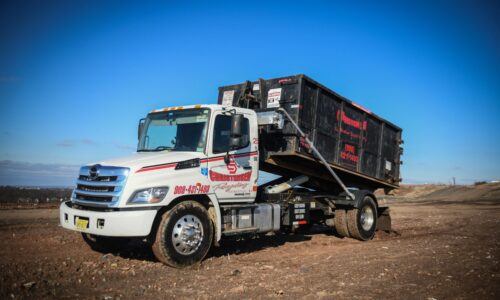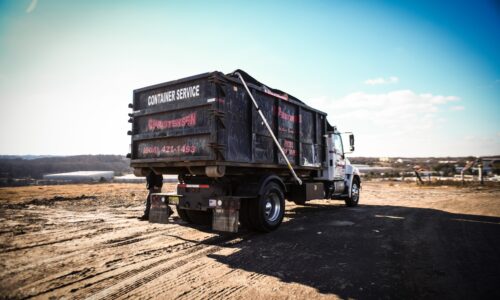Where does Trash Go?
Have you ever wondered what happens to your trash after it leaves your home? Uncovering the Mystery of Where Our Trash Goes takes a deep dive into the world of waste management and recycling to provide an informative and eye-opening look at the process of disposing of our trash. From landfills to incinerators, this article will explore the different ways our trash is managed and how it affects the environment. With a focus on sustainability and green initiatives, this article will help you understand the importance of reducing, reusing, and recycling our waste.
The Journey of Our Trash: Following the Path of Discarded Waste
The journey of our trash is a long and winding one, with discarded waste traveling far and wide before it reaches its final destination. As individuals, we are often unaware of the journey our trash takes, and the impact it has on the environment.
When we throw something away, it is usually taken to a landfill, where it is buried and compacted. This process can take years, as the waste slowly breaks down. However, the breakdown process is not complete, and the waste continues to produce methane gas, which is a major contributor to global warming.
From the landfill, our trash can travel to a recycling center. Here, it is sorted and separated into different materials, such as plastic, glass, and metal. These materials are then sent to factories where they are melted down and turned into new products.
Some of our trash is also sent to incinerators, where it is burned and converted into energy. This process produces toxic emissions, which can be harmful to the environment.
Finally, some of our trash is sent to a composting facility, where it is broken down into nutrient-rich soil. This soil can then be used to grow plants and vegetables, helping to reduce the amount of waste that ends up in landfills.
No matter where our trash ends up, it is important to remember that it has a long journey before it reaches its final destination. By reducing our waste and recycling whenever possible, we can help to reduce the amount of trash that ends up in landfills and incinerators, and help to protect the environment.
Examining the Environmental Impact of Our Trash Disposal Habits
The way we dispose of our trash has a significant impact on the environment. Every day, millions of tons of waste are generated, and how we manage it affects the air, water, and land around us. Examining our trash disposal habits can help us reduce our environmental footprint and ensure a healthier future for our planet.
When it comes to disposing of our trash, the most important thing to consider is whether we are using sustainable methods. Sustainable waste management practices include recycling, composting, and reducing the amount of waste we generate. By reusing and repurposing materials, we can reduce the amount of waste that ends up in landfills and incinerators.
Another important factor to consider is how our trash is transported. Many materials, such as plastics, can take hundreds of years to decompose, and when they are transported to landfills, they can release harmful chemicals into the air. Burning trash also releases toxic chemicals into the air, which can be damaging to both human health and the environment.
Finally, it is important to consider the impact of our trash on wildlife. Many animals, such as birds and marine life, can become entangled in plastic and other debris, leading to injury or death. Animals can also ingest plastic and other materials, leading to illness or death.
By examining our trash disposal habits, we can make sure that we are doing our part to protect the environment. By recycling, composting, and reducing the amount of waste we generate, we can reduce our environmental footprint and ensure a healthier future for our planet.
Exploring the Technologies Used to Track and Monitor Our Trash
Tracking and monitoring our trash is an important part of ensuring a healthy and sustainable environment. With the advancement of technology, there are now several different ways to track and monitor our trash. These technologies can help us better understand the amount of waste we generate, where it goes, and how it can be recycled or reused.
One of the most common technologies used to track and monitor our trash is RFID (Radio Frequency Identification). RFID tags are placed on each piece of trash and can be scanned to track its movement. This allows us to know exactly where our trash is going and how it is being handled. RFID tags can also be used to track the recycling process, helping us to better understand the efficiency of our recycling efforts.
Another technology used to track and monitor our trash is GPS (Global Positioning System). GPS tags are placed on each piece of trash and can be tracked in real-time. This allows us to know exactly where our trash is going and how it is being handled. GPS tags can also be used to track the recycling process, helping us to better understand the efficiency of our recycling efforts.
In addition to RFID and GPS, there are also other technologies used to track and monitor our trash. For example, sensors can be placed on each piece of trash to monitor its temperature, humidity, and other environmental conditions. This helps us to better understand the effects of our waste on the environment. Sensors can also be used to detect the presence of hazardous materials in our trash, helping us to identify and address any potential risks.
Finally, we can also use cameras to track and monitor our trash. Cameras can be used to observe the disposal process and identify any potential issues. They can also be used to monitor the recycling process, helping us to better understand the efficiency of our recycling efforts.
Overall, tracking and monitoring our trash is an important part of ensuring a healthy and sustainable environment. By using the latest technologies, we can better understand the amount of waste we generate, where it goes, and how it can be recycled or reused. This will help us to reduce our environmental impact and create a more sustainable future.
Investigating the Societal Implications of Our Trash Disposal Practices
The way we dispose of our trash has far-reaching implications for society. It affects the environment, public health, and the economy. As such, it is important to investigate the societal implications of our trash disposal practices.
First, our trash disposal practices have a direct impact on the environment. When trash is not disposed of properly, it can end up in our waterways, soil, and air. This can lead to air and water pollution, which can have a negative effect on the environment. Additionally, when trash is not disposed of properly, it can accumulate in landfills, which can lead to land degradation and the release of toxic gases into the atmosphere.
Second, we can have an impact on public health. Improper disposal of trash can lead to the spread of diseases, as trash can be a breeding ground for bacteria and other pathogens. Additionally, when trash is not disposed of properly, it can lead to the contamination of soil and water, which can have a negative effect on the health of those who come into contact with it.
Finally, our trash disposal practices can have an impact on the economy. Improper disposal of trash can lead to higher costs for businesses, as they may have to pay for the cleanup of contaminated areas. Additionally, improper disposal of trash can lead to higher taxes for citizens, as governments may have to pay for the cleanup of contaminated areas.
In conclusion, it is important to investigate the societal implications of our trash disposal practices. Our trash disposal practices can have a direct impact on the environment, public health, and the economy. As such, it is important to ensure that our trash disposal practices are done in a safe and responsible manner.
Uncovering the Hidden Benefits of Proper Trash Disposal
Proper trash disposal is an important part of keeping our environment clean and healthy. It is also an important part of maintaining public health and safety. When trash is disposed of properly, it helps to reduce the spread of disease, prevent pollution, and protect wildlife. In addition to these benefits, there are many hidden benefits of proper trash disposal that are often overlooked.
One of the hidden benefits of proper trash disposal is that it can help to reduce the amount of waste that is sent to landfills. When trash is disposed of properly, it is recycled or composted, which helps to reduce the amount of waste that is sent to landfills. This can help to reduce the amount of space that is taken up by landfills, which can help to reduce the environmental impact of landfills.
Another hidden benefitis that it can help to reduce the amount of pollution that is created by trash. When trash is disposed of properly, it is recycled or composted, which helps to reduce the amount of pollution that is created by the decomposition of the trash. This can help to reduce the amount of air and water pollution that is created by trash.
Finally, proper trash disposal can help to protect wildlife. When is disposed of properly, is recycled composted, helps to reduce the amount of trash that is left in the environment. This can help to reduce the amount of trash that is eaten by wildlife, which can help to protect wildlife from becoming sick or injured from eating trash.
It is an important part of keeping our environment clean and healthy. It can help to reduce the amount of waste that is sent to landfills, reduce the amount of pollution that is created by trash, and protect wildlife. These are just a few of the hidden benefits of proper trash disposal that are often overlooked. By disposing of our trash properly, we can help to ensure that our environment remains clean and healthy for generations to come.
The mystery of where our trash goes is a complex one. By understanding the process of waste management, we can begin to uncover the mystery and learn more about how our trash is handled. We can also take steps to reduce our waste and ensure that our trash is disposed of responsibly. By understanding the process of waste management, we can ensure that our trash is handled in a safe and responsible manner, helping to protect our environment and the health of our communities.
With proper recycling techniques used at Christensen Recycling, you can be sure that your garbage, debris and metal are being disposed in the proper way!
Give us a call to order a dumpster today @ 908-421-1493
Categorised in: Blog, Dumpster Rentals, Smart Waste Management, Waste Management


